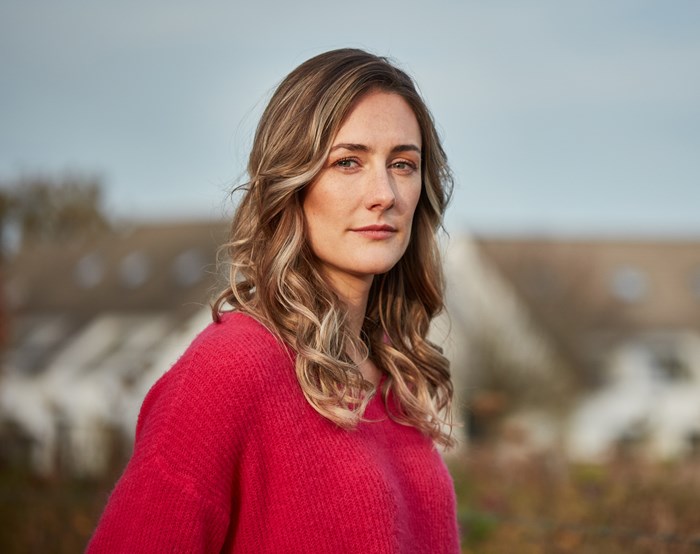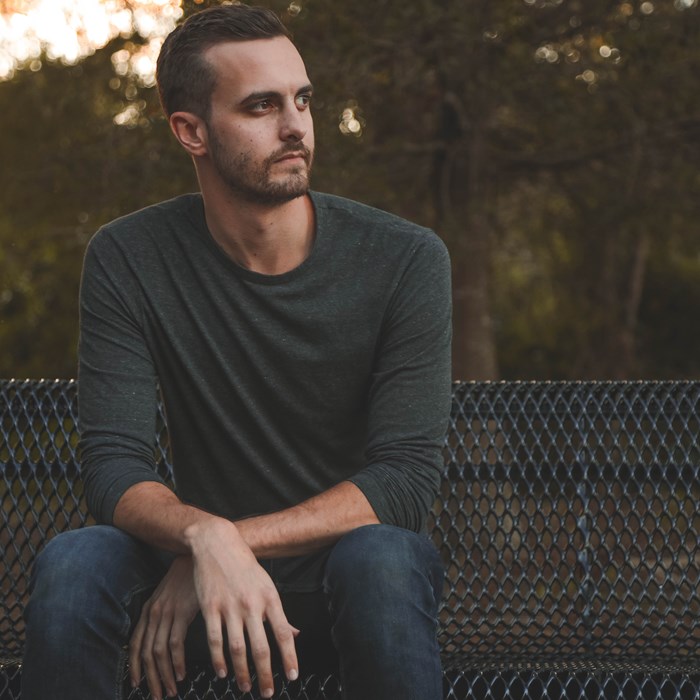
How to recover from PTSD | Veterans Day 2022
Trauma is often something that doesn't only influence you: it also has a lot of influence on your family and friends. Some soldiers know all about that. Just like, for example, police officers and victims of sexual violence and accidents. “Fortunately, PTSD (post-traumatic stress disorder) can often be treated effectively and quickly,” says U-center psychologist Yaël Smeets (30).
'What happened? What did it look like? Have you killed someone too?’ Family and friends often ask a lot of questions – understandably. “But when you answer and the other person panics? Then you'll think twice next time," says Yaël. Since 2016 he has been working as a health care psychologist and EMDR Europe practitioner (trauma therapist) at U-center. In the international clinic, for example, he regularly treats traumatized soldiers. They also find it difficult to talk about their trauma. But carrying your trauma with you disrupts your whole life and the lives of the people important to you. What can help in this situation?
“Attention and understanding always help,” says Yaël. That's why Dutch Veterans Day is organized yearly on June 25, 2022. With activities throughout the country, the Netherlands thanks more than 100,000 soldiers who have been deployed for peace. Did someone come home with PTSD? Then more is needed.

Post-traumatic stress disorder – what it means
When you suffer from PTSD you're not just in shock after one or more bad events – that's normal. But after a month or more, your body is still in a heightened state of readiness. Your nervous system is 'stuck'. That rarely goes away on its own.
“It just makes you a different person,” says Yaël. “Scared, hyperalert, easily irritated… You also become creative in trying to prevent flashbacks. Such as avoiding movies and fireworks or numbing yourself with alcohol or cannabis. That just makes it worse.” PTSD also often leads to other psychological disorders, such as sleep, mood or anxiety disorders, or an addiction.
Quote
One session of EMDR can provide relief.
Set your limits
Do you have a family? Then your partner often takes over many tasks. “Understandable: he or she's trying to save the day,” says Yaël. “With the danger of forgetting one's own needs.” That is why his tip for partners and significant others: “Define your boundaries: what do you want to take on? And do you really want to know all the details of what happened?” He also advises informing yourself. “The more you know about PTSD, the better you can deal with it. If you're not careful, it can take a toll on you."
Trauma and family
According to Yaël, traumatized parents are also at risk of passing on trauma more easily to their children. Especially if they often have anger outbursts, and constantly reject or even neglect their children. This often leads to attachment problems, because for a child such a thing is usually threatening and incomprehensible. The child thinks, there must be something wrong with me. “It would make a big difference if parents talk to their children about their problems. "Mom or Dad was just very angry, but that's not your fault." Sometimes a person with PTSD does not seek treatment until family or others tell them to do so. What does that treatment often look like?

This PTSD-treatment works
“Don't be too careful, but try to be a little daring and 'jump into the deep end' together, that's helpful,” says Yaël. Modern PTSD treatments, therefore, start with mapping the situation. For example: what happened, who is the perpetrator and how tense do you get when you think about it?
Then you start EMDR (Eye Movement Desensitization and Reprocessing), often together with cognitive-behavioural therapy (CBT). EMDR aims to experience negative incidents as more neutral. And with CBT, you learn to explore and challenge unhelpful thoughts. But U-center does more.
Regularity in the clinic, mindfulness, exercise, physiotherapy… “It's important to release your tension regularly,” says Yaël. And sometimes drama therapy. “The more often others step over your boundaries, the more difficult it becomes to sense when it happens and maintain your boundaries. We practice this with role plays.
“Many soldiers have forgotten what else they find fun and important in life,” says Yaël. “Their work absorbs all their attention. So we take that into account too. And also: how did you become who you are as a person? And have you perhaps neglected your family a bit? We use all therapies at the same time.”

Don't be ashamed
Everyone may need such treatment at some point. “Because you, me, anyone can be disrupted by one traumatic event,” says Yaël. According to him, this is especially true if you don't have space to share it with people so you can process some of it while talking. Or if you think it's your fault and you're ashamed of it. “Fortunately, one session of EMDR can provide relief.”
What are those traumatic stories like for Yaël himself? “As a therapist, in a way, I can shut myself off from the details, but I'm also just human. At home, at night I sometimes think: gosh, how intense. But above all: what else can I do to help someone get rid of their PTSD?”






